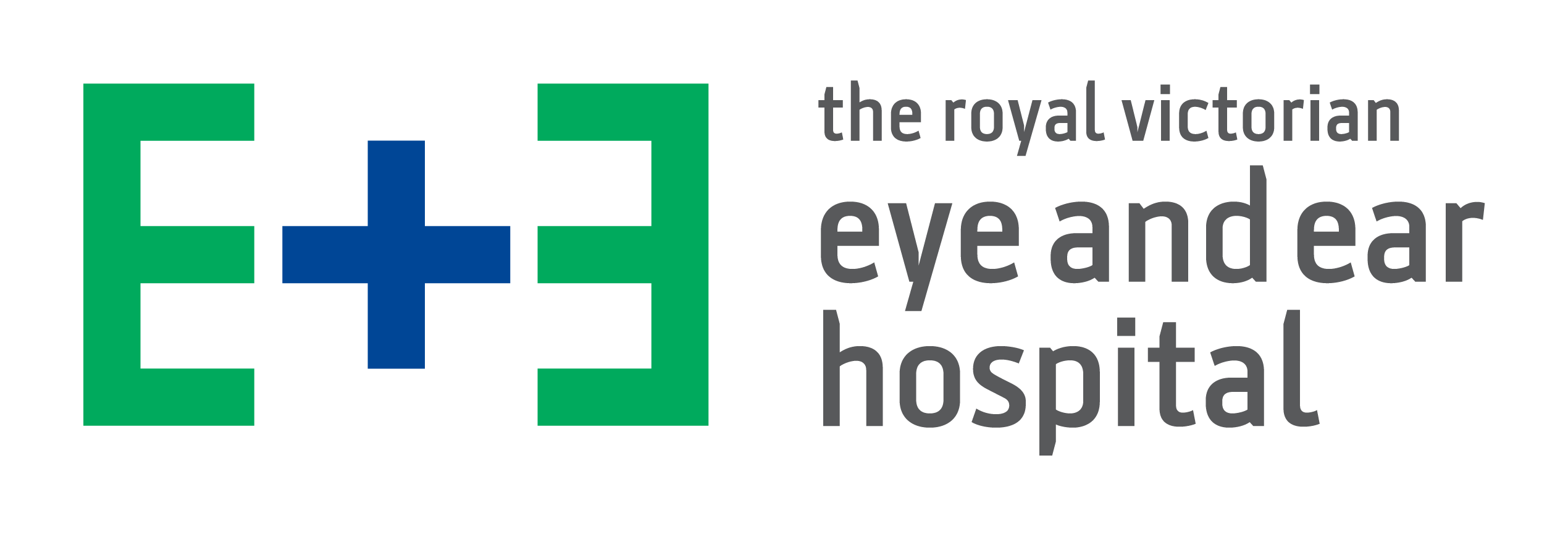Social Work Services
Changes to vision and hearing can often be a challenging time for you and family members. Other issues can also impact on your physical health and emotional wellbeing. We can provide support in a number of ways. To connect with a social worker, please call (03) 9929 8234 and select option 3 to leave a message and a social worker will contact you. Alternatively, you can request a referral to Social Work at your next specialist clinic appointment or inpatient stay.
Transport and Accommodation Support
The patient transport and accommodation unit assists in supporting the transport and accommodation needs of hospital patients. If you are having difficulty getting to the Eye and Ear for an appointment or have special needs, the Eye and Ear has advice about how to seek assistance.
State-wide transport coordination
We can organise non-emergency transport state-wide for patients who meet certain eligibility based on medical grounds.
- In case of an emergency: Dial 000 to call an ambulance.
- For surgery appointments: Contact Ambulance Victoria through the patient’s GP or aged care facility.
- For discharge: Medical transport can be arranged for patients with clinical needs, while taxi services are available at the patient’s expense; families or caregivers should plan discharge transport in advance to ensure a smooth transition home.
- For outpatient clinic appointments or other inquires: Call us on (03) 9929 8234 and select option 2 to find out more.
Local Community transport providers may also assist patients in getting to their medical appointments at the Eye and Ear. Learn more here.
Non-Emergency Patient Transport or Volunteer Services are not alternatives to using taxis, family members, private vehicles, or public transport. Appointments may need to be rescheduled to a day when family members or caregivers can assist the patient with transport.
Travellers Aid
Travellers Aid can also provide support, advice and assistance about getting to and from appointments. Find out more about Travellers Aid, and their services on their website.
Do you live further than 100km from the Eye and Ear?
Did you know you could be eligible for reimbursement of some transport costs to attend the hospital? The Victorian Patient Transport Assistance Scheme (VPTAS) assists rural Victorians who need to travel long distances from home for specialised medical treatment from approved specialist doctors. To be eligible for assistance, patients must reside in a rural region and travel 100 kilometres or more (one way), or an average of 500 kilometres per week for five weeks or more, to receive treatment from a recognised specialist. Each state has its own subsidy scheme.
Download a claim form and learn more about VPTAS here. Physical forms are also available at clinic receptions, please ask one of our friendly Patient Services and Access staff for a copy.
Please ensure your form is signed by a doctor. Payments can take up to 6-8 weeks to receive. Please contact 1300 737 073 or vptas@health.vic.gov.au if you have any questions.
Accommodation
A list of local accommodation around the Eye and Ear can be downloaded here. These accommodation options are independent and not organised by the hospital. Contact us on (03) 9929 8234 for more information.
If you are experiencing difficulties with your living situation and are not already linked in with any support services, please contact our Social Work to discuss if additional support is available.
For urgent housing needs, call 1800 825 955 to speak with a housing and support worker. This free, 24-hour statewide service is here for anyone who is homeless, at risk of homelessness, or escaping family violence. More information is available on the Department of Families, Fairness and Housing Victoria website here.
Interpreters
To ensure you understand your medical condition we can book an interpreter to communicate in your preferred language. This can include an on-site interpreter, telephone interpreter or video interpreter. For the deaf community we can organise Auslan interpreters. To request an interpreter please advise when booking your appointment or surgery. Please call (03) 9929 8234 or email interpreters@eyeandear.org.au at least two weeks before your appointment to organise.
Multilingual Language Lines
We have the information lines available for people using our services, which are available in six languages – English, Cantonese, Greek, Italian, Mandarin, and Vietnamese. Visit General Information in Your Language to find a phone number in your language.
The hospital infolines provide our consumers with helpful information in an accessible format and multiple languages with the aim to better serve Victorian communities and help make visits to the Eye and Ear go smoothly.
Diabetes Education
The management of diabetes eye disease requires a team approach to ensure good control of blood glucose levels, blood pressure and cholesterol. We work with you to manage diabetes eye disease. The team includes the person living with diabetes, their local GP, diabetes specialist, dietitian, podiatrist, counselor, diabetes educator and medical eye specialist. Our diabetes educator is available to provide education support and information to patients accessing the hospital services, and can assist patients to access appropriate diabetes services available within their local community area.
